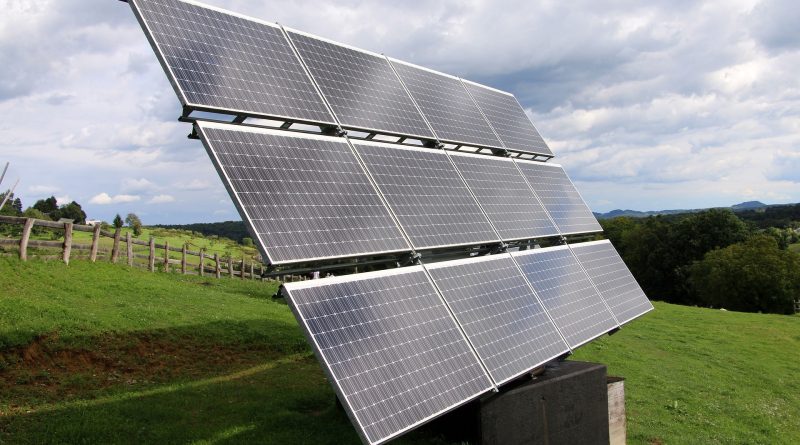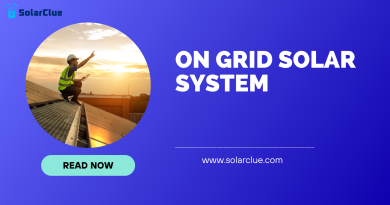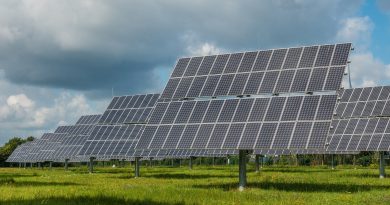Decoding On-Grid Solar Systems: Explained
In recent years, the global shift towards renewable energy sources has gained significant momentum. Among the various green technologies available, solar power stands out as one of the most promising and rapidly expanding sectors. Solar energy systems not only provide a clean alternative to traditional sources but also offer numerous economic and environmental benefits. One popular type of solar power system is the on-grid solar system. This blog will delve into the workings, advantages, and considerations of an on-grid solar system, shedding light on why it is a viable option for homes and businesses alike.
Table of Contents
Understanding On-Grid Solar Systems
On-grid solar systems, also known as grid-tied or grid-connected systems, are designed to generate electricity from solar panels while remaining connected to the local utility grid. Unlike off-grid systems that rely solely on solar power and require energy storage through batteries, on-grid systems utilize the existing power grid as a backup and storage mechanism.
How On-Grid Solar Systems Work
The functioning of an on-grid solar system is relatively straightforward. When sunlight hits the solar panels, the photovoltaic (PV) cells within the panels convert the sunlight into direct current (DC) electricity. An inverter is then used to convert the DC electricity into alternating current (AC) electricity, which is the type of electricity used in homes and businesses. This AC electricity is utilized to power appliances and electrical loads within the premises.
Tie Into the Grid
The crucial feature of an on-grid solar system is its connection to the local utility grid. Any excess electricity generated by the solar panels can be fed back into the grid, often through a process called net metering. Net metering allows homeowners to receive credit for the excess electricity they produce, which can be used during times when the solar panels do not generate sufficient electricity, such as nighttime or during periods of low sunlight. This integration with the grid ensures a stable and reliable energy supply, eliminating the need for energy storage and increasing the overall efficiency of the system.
Advantages of On-Grid Solar Systems
1. Cost Savings: One of the primary advantages of on-grid solar systems is the potential for cost savings. By generating your electricity, you can significantly reduce or eliminate your reliance on the grid, resulting in lower monthly energy bills.
2. Environmental Benefits: On-grid solar systems contribute to a cleaner and greener environment by reducing your carbon footprint. Solar energy is renewable, emits zero greenhouse gases during operation, and helps combat climate change.
3. Net Metering: The ability to feed excess electricity back into the grid through net metering allows homeowners to receive credit for the energy they produce. This credit can offset the costs during periods of lower solar generation, effectively reducing electricity bills further.
4. Reliability: On-grid solar systems offer a reliable source of electricity. During times when solar production is low, such as cloudy days or at night, the grid connection ensures a seamless transition to grid power, ensuring uninterrupted energy supply.
Considerations and Limitations
While on-grid solar systems have several advantages, they do come with certain considerations and limitations that need to be taken into account:
1. Dependency on the Grid: Since on-grid systems do not store surplus electricity, you are reliant on the grid during periods of low or no solar generation. Power outages in the grid will also affect the availability of electricity in your home or business. It is essential to have a backup plan or battery storage if uninterrupted power supply is critical.
2. Grid Connection Requirement: To install an on-grid solar system, you need to have access to the local utility grid. Remote or off-grid locations may not be suitable for this type of system.
3. Government Regulations: The availability and benefits of net metering vary depending on your location and government regulations. It is crucial to review and understand the local policies and incentives regarding solar energy.
Conclusion
On-grid solar systems offer an efficient, cost-effective, and environmentally friendly way to harness the power of the sun. By remaining connected to the grid, homeowners and businesses can benefit from reduced energy costs, net metering, and a reliable energy supply. However, it is important to consider factors such as grid dependency and local regulations before opting for an on-grid solar system. With the continuous advancements in solar technology and increasing adoption, on-grid solar systems present a compelling solution to meet energy needs while moving towards a more sustainable future.
Empower your home with On-Grid Solar! Discover the benefits with SolarClue®. Switch to sustainable energy for a brighter future.
Frequently Asked Questions
An on-grid system is connected to the utility grid, allowing excess solar power to be fed back into the grid.
No, for safety reasons, on-grid systems are designed to shut down during grid outages.
Excess power generated is fed back to the grid, earning credits or reducing electricity bills through net metering.
Many regions offer incentives such as tax credits or feed-in tariffs to encourage on-grid solar installations.
Yes, combining battery storage with an on-grid system allows for energy storage and use during grid outages.
On-grid systems typically require less maintenance as they don’t rely solely on stored power.
Yes, through net metering, excess power can be fed back to the grid, earning compensation or credits.
Yes, it’s important to inform and coordinate with the utility company before installing an on-grid solar system.
On-grid systems are designed for locations with grid access; off-grid systems are more suitable for remote areas.
The size depends on energy needs; a professional assessment can determine the optimal capacity for a residential on-grid system.




